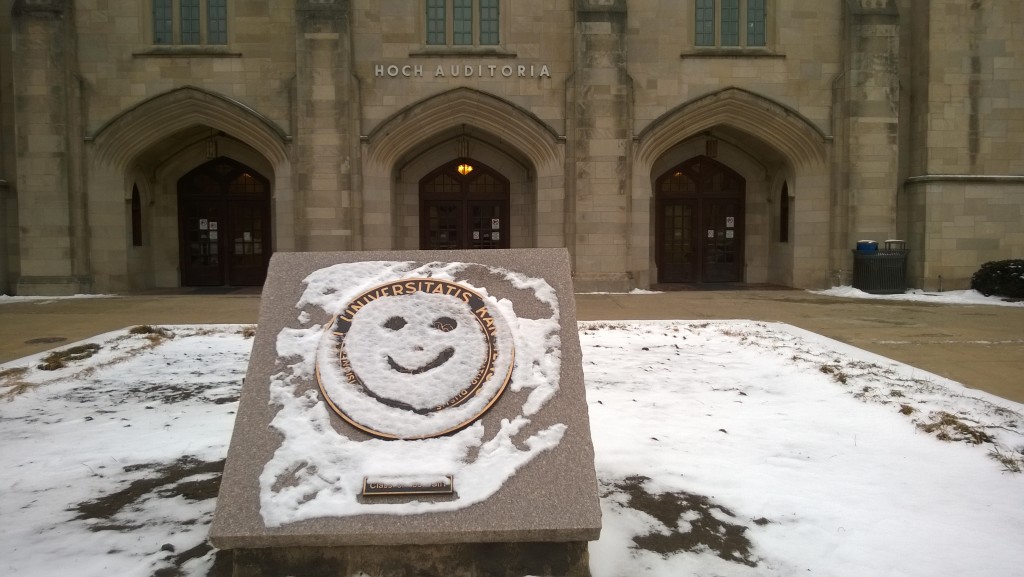In a discussion among faculty earlier this week, a conversation about online education quickly turned skeptical.
We were exploring the model of the Minerva Schools, which uses a combination of online and experiential learning with a small group of students. It aims to reduce the cost of college by using technology, rather than physical classrooms, and to create cohorts of students who live in and explore different international locations each year. Minerva’s first class of students started last fall.
One faculty member in our discussion at CTE said that her most memorable undergraduate experiences took place in hands-on labs or in field experiments where students explored the many facets of the natural universe. How is it possible to replicate that experience online? she asked.

Another faculty member talked about the difficulty of having deep discussions online. Yes, students and instructors can share thoughts and debate gray areas on a virtual discussion board, but those discussions lack spontaneity. Even live discussions with webcams don’t provide the same interactions or visual cues as in-person discussions. They also lack the same verve of classroom interaction, he said.
Those doubts are understandable. They are also widely shared.
A report released earlier this month by Babson Survey Research Group and the Online Learning Consortium (There was link here, but it no longer exists) showed a tempering of enthusiasm for online undergraduate courses. Growth in online courses has slowed considerably from a few years ago, though it is still at 3.8 percent annually. The authors of the report write:
“While the number of students taking distance courses has grown by the millions over the past decade, it has not come without considerable concerns. Faculty acceptance has lagged, concerns about student retention linger, and leaders continue to worry that online courses require more faculty effort than face-to-face instruction.”
Babson’s survey of chief academic offers found that faculty acceptance of the “value and legitimacy of online education” declined over the last two years to 28 percent, nearly the same percentage as in 2003.
The report provides a central reason that faculty members have doubts about online courses: There is “no agreed upon measure of educational quality – either for face-to-face or for online education.”
We have no common, definitive way of comparing, so we go with our gut, and our gut tells us that in-person learning is better than online learning.
I understand faculty concerns about online courses. At the same time, I see great value in those courses and see a need to continue expanding them. I’ve been leading development of a mostly online master’s degree in Digital Content Strategy that will start this year. Online courses for undergraduates provide an important means for students to keep on track toward graduation, especially during the summer and intersession. We can also use online courses to reach out to students who stopped their education at some point, giving them the opportunity to complete their college education.
One reason online education raises such doubts at traditional universities, though, is that those universities fail to explain its role in undergraduate education. At one point, administrators pushed online courses because they saw them as a way to save faculty time and universities money. (They don’t, if done right.) Or they pursued them because everyone else was, and they didn’t want to get left behind.
Beyond that, though, they haven’t addressed some crucial questions: Are universities developing online courses for student convenience? For faculty convenience? Are they intended to help improve graduation rates? To provide new ways of learning? And if they expand their online offerings, how do those courses fit with on-campus instruction? Most important, are students learning what they need to learn in whatever format courses take?
Those are just a few of the challenging questions we have to consider. Those questions loom especially large at universities that have invested millions of dollars in a physical infrastructure, that have specialized in personal interaction and hands-on learning opportunities, and that have sold students on the idea of an on-campus “experience.”
Until faculty members see a strategy to online course development, until they buy in to the why behind online course offerings, and until they alleviate valid concerns about online courses’ ability to deliver deep, meaningful learning, they will continue to express skepticism. And rightfully so.
Doug Ward is an associate professor of journalism and the associate director of the Center for Teaching Excellence. You can follow him on Twitter @kuediting.